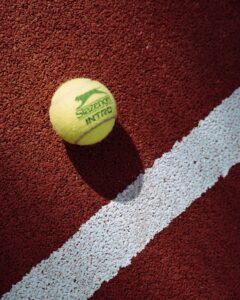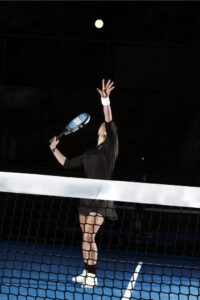Maximizing Strategy: Tips for Better Decision Making in Padel
3 min readMaximizing Strategy: Tips for Better Decision Making in Padel
Welcome, padel enthusiasts! Are you ready to take your game to the next level? In the exciting world of padel, making quick and effective decisions can be the difference between winning and losing. Today, we’ll be unlocking the secrets to improving your decision-making skills on the court. So, grab your racket, slip on your sneakers, and let’s delve into the art of strategic padel play!
Eye on the Ball: Stay Focused
When it comes to decision-making in padel, the first rule of thumb is to keep your eyes firmly fixed on the ball. It may sound obvious, but in the heat of the moment, it’s easy to let distractions cloud your judgment. By maintaining unwavering focus, you’ll be able to anticipate your opponent’s shots and react swiftly, always staying one step ahead.
One great way to improve your focus is through regular practice with a partner. Train your eyes to track the ball’s movement, using peripheral vision to keep an eye on your surroundings. This heightened awareness will enable you to make better decisions during those intense rallies.
Reading the Play: Befriend Anticipation
Padel is not just a sport of agility and precision; it’s also a game of anticipation. Developing the ability to read your opponent’s moves can drastically improve your decision-making on the court. Keep a close watch on their body language, racket position, and even the direction of their glance. These subtle hints can give you precious insights into their next move.
How can you sharpen your anticipation skills? Well, one of the most enjoyable ways is to play more matches. As you face different opponents, you’ll start to recognize patterns, strategies, and common shots. This will allow you to anticipate their next moves and react accordingly, giving you the upper hand in the game of padel chess.
Teamwork: The Power of Communication
Padel may be played as a doubles game, but it requires individual decision-making within a team context. Successful communication with your partner is vital to making better decisions and maximizing your overall strategy. From deciding when to switch positions on the court to signaling your intentions before hitting the ball, effective communication is key to seamless gameplay.
So, how can you improve communication with your padel partner? First, develop a solid understanding of each other’s strengths and weaknesses. This knowledge will help you make more informed decisions on who should take charge during crucial moments. Second, establish a set of basic signals or call-outs to use during the game. This way, you will streamline your decision-making process and avoid confusion or miscommunication.
Evaluate, Adapt, and Conquer
As with any sport, becoming a master of decision-making in padel requires a constant process of evaluation and adaptation. Take the time to analyze your own gameplay, identifying areas where your decision-making could be improved. Perhaps you tend to commit to risky shots when under pressure or struggle with deciding between offensive and defensive plays.
To enhance your decision-making abilities, seek guidance from experienced players or coaches. They can provide valuable insights, helping you refine your strategy and make better choices on the court. Remember, learning is a never-ending journey, and embracing constant improvement is what separates the great from the extraordinary in the world of padel!
Conclusion
So, there you have it, fellow padel aficionados! The path to improving decision-making in padel begins with focus, anticipation, and effective communication. By mastering these skills and being open to continuous growth, you’ll elevate your game to new heights. Embrace the excitement, enjoy the process, and relish every decision you make on the padel court!






